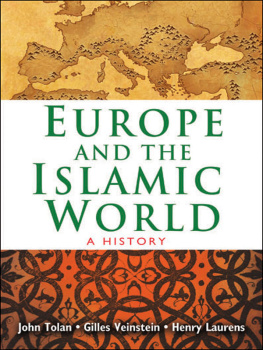CHAPTER I.
ON THE GOVERNMENT OF NATURE BY LAW.
Table of Contents
The subject of this Work proposed.Its difficulty.
Gradual Acquisition of the Idea of Natural Government by Law.Eventually sustained by Astronomical, Meteorological, and Physiological Discoveries.Illustrations from Kepler's Laws, the Trade-winds, Migrations of Birds, Balancing of Vegetable and Animal Life, Variation of Species and their Permanence.
Individual Man is an Emblem of Communities, Nations, and Universal Humanity.They exhibit Epochs of Life like his, and, like him are under the Control of Physical Conditions, and therefore of Law.
Plan of this Work.The Intellectual History of Greece.Its Five characteristic Ages.European Intellectual History.
Grandeur of the Doctrine that the World is governed by Law.
The subject proposed.
I intend , in this work, to consider in what manner the advancement of Europe in civilization has taken place, to ascertain how far its progress has been fortuitous, and how far determined by primordial law.
Does the procession of nations in time, like the erratic phantasm of a dream, go forward without reason or order? or, is there a predetermined, a solemn march, in which all must join, ever moving, ever resistlessly advancing, encountering and enduring an inevitable succession of events?
In a philosophical examination of the intellectual and political history of nations, an answer to these questions is to be found. But how difficult it is to master the mass of facts necessary to be collected, to handle so great an accumulation, to place it in the clearest point of view; how difficult it is to select correctly the representative Its difficulty and grandeur. men, to produce them in the proper scenes, and to conduct successfully so grand and complicated a drama as that of European life! Though in one sense the subject offers itself as a scientific problem, and in that manner alone I have to deal with it; in another it swells into a noble epicthe life of humanity, its warfare and repose, its object and its end.
Man is the archetype of society. Individual development is the model of social progress.
Some have asserted that human affairs are altogether determined by the voluntary action of men, some that the Providence of God directs us in every step, some that all events are fixed by Destiny. It is for us to ascertain how far each of these affirmations is true.
Individual life of a mixed kind.
The life of individual man is of a mixed nature. In part he submits to the free-will impulses of himself and others, in part he is under the inexorable dominion of law. He insensibly changes his estimate of the relative power of each of these influences as he passes through successive stages. In the confidence of youth he imagines that very much is under his control, in the disappointment of old age very little. As time wears on, and the delusions of early imagination vanish away, he learns to correct his sanguine views, and prescribes a narrower boundary for the things he expects to obtain. The realities of life undeceive him at last, and there steals over the evening of his days an unwelcome conviction of the vanity of human hopes. The things he has secured are not the things he expected. He sees that a Supreme Power has been using him for unknown ends, that he was brought into the world without his own knowledge, and is departing from it against his own will.
It foreshadows social life.
Whoever has made the physical and intellectual history of individual man his study, will be prepared to admit in what a surprising manner it foreshadows social history. The equilibrium and movement of humanity are altogether physiological phenomena. Yet not without hesitation may such an opinion be frankly avowed, since it is offensive to the pride, and to many of the prejudices and interests of our age. An author who has been disposed to devote many years to the labour of illustrating this topic, has need of the earnest support of all who prize the truth; and, considering the extent and profundity of his subject, his work, at the best, must be very imperfect, requiring all the forbearance, and even the generosity of criticism.
First opinions of savage life. In the intellectual infancy of a savage state, Man transfers to Nature his conceptions of himself, and, considering that every thing he does is determined by his own pleasure, regards all passing events as depending on the arbitrary volition of a superior but invisible power. He gives to the world a constitution like his own. His tendency is necessarily to superstition. Whatever is strange, or powerful, or vast, impresses his imagination with dread. Such objects are only the outward manifestations of an indwelling spirit, and therefore worthy of his veneration.
After Reason, aided by Experience, has led him forth from these delusions as respects surrounding things, he still clings to his original ideas as respects objects far removed. In the distance and irresistible motions of the stars he finds arguments for the supernatural, and gives to each of those shining bodies an abiding and controlling genius. The mental phase through which he is passing permits him to believe in the exercise of planetary influences on himself.
Fetichism displaced by star-worship.
But as reason led him forth from fetichism, so in due time it again leads him forth from star-worship. Perhaps not without regret does he abandon the mythological forms he has created; for, long after he has ascertained that the planets are nothing more than shining points, without any perceptible influence on him, he still venerates the genii once supposed to vivify them, perhaps even he exalts them into immortal gods.
Philosophically speaking, he is exchanging by ascending degrees his primitive doctrine of arbitrary volition for the doctrine of law. As the fall of a stone, the flowing of a river, the movement of a shadow, the rustling of a leaf, have been traced to physical causes, to like causes at last are traced the revolutions of the stars. In events and scenes continually increasing in greatness and grandeur, The idea of government by law. he is detecting the dominion of law. The goblins, and genii, and gods who successively extorted his fear and veneration, who determined events by their fitful passions or whims, are at last displaced by the noble conception of one Almighty Being, who rules the universe according to reason, and therefore according to law.
Its application to the solar system.
In this manner the doctrine of government by law is extended, until at last it embraces all natural events. It was thus that, hardly two centuries ago, that doctrine gathered immense force from the discovery of Newton that Kepler's laws, under which the movements of the planetary bodies are executed, issue as a mathematical necessity from a very simple material condition, and that the complicated motions of the solar system cannot be other than they are. Few of those who read in the beautiful geometry of the 'Principia' the demonstration of this fact, saw the imposing philosophical consequences which must inevitably follow this scientific discovery. And now the investigation of the aspect of the skies in past ages, and all predictions of its future, rest essentially upon the principle that no arbitrary volition ever intervenes, the gigantic mechanism moving impassively in accordance with a mathematical law.









